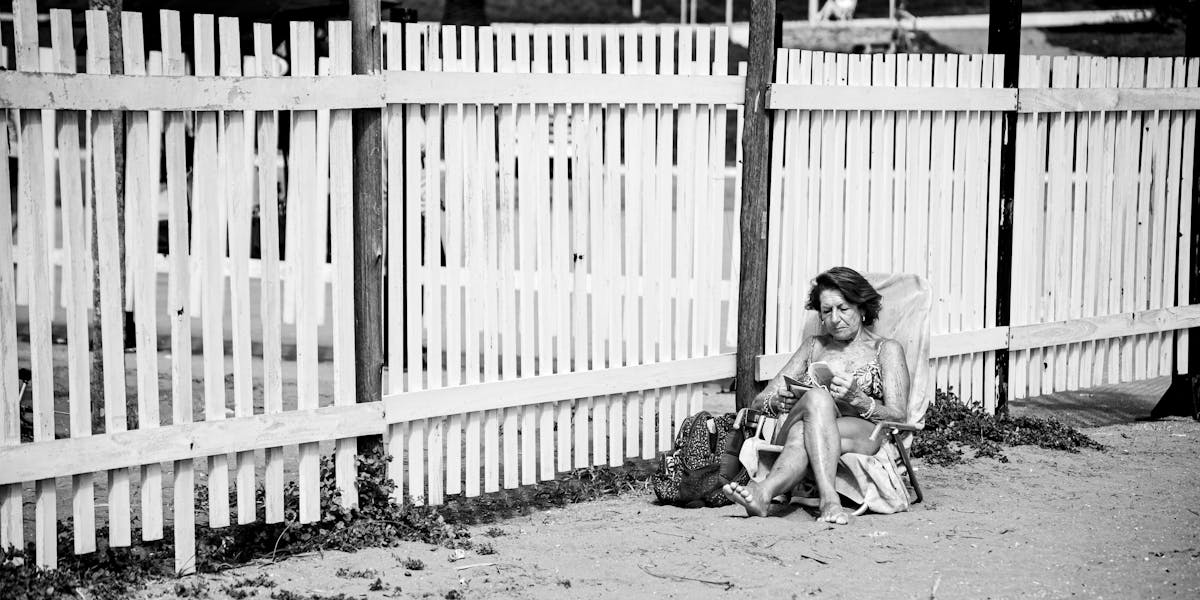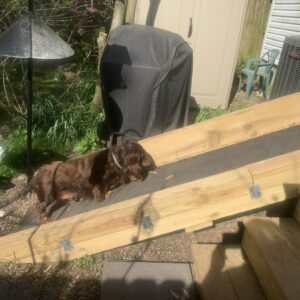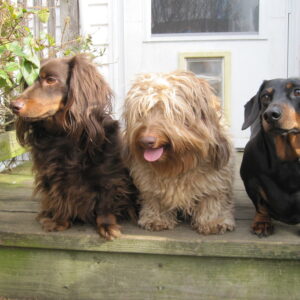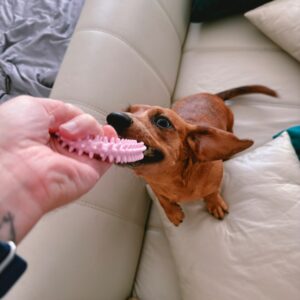Senior dachshund care is essential for ensuring that your beloved pet enjoys a happy and healthy life as they age. Just like humans, senior dogs have unique needs that require special attention and understanding. As your faithful companion grows older, it becomes crucial to adapt their lifestyle and care routines to cater to their changing health and well-being. In this article, we will explore various aspects of senior dachshund care, including:
- Understanding Senior Dachshund Needs
- Best Nutrition for Senior Dachshunds
- Exercise Guidelines for Older Dachshunds
- Managing Common Health Issues
- Grooming Tips for Senior Dachshunds
- Creating a Comfortable Living Space
- Regular Vet Check-Ups Importance
- Mental Stimulation Activities for Seniors
- Signs Your Senior Dachshund Needs Help
By familiarizing yourself with these aspects, you’ll be better equipped to provide the finest care for your senior dachshund, ensuring they remain comfortable and joyful during their golden years.

Understanding Senior Dachshund Needs
As your dachshund ages, their needs change significantly. Understanding these changes is crucial for ensuring their health and happiness. Senior dachshunds often require special attention to their physical, emotional, and mental well-being.
Physical Changes
With age, dachshunds may experience reduced mobility and joint stiffness. It is important to:
- Monitor their weight: Obesity can worsen joint issues.
- Provide comfortable bedding: Soft, supportive beds can ease pressure on joints.
- Adjust their diet: Nutritional needs change, and a diet suited for seniors can help maintain their health.
Emotional Needs
Senior dachshunds may become more anxious or require more affection. To support their emotional well-being:
- Spend quality time: Regular interaction can help reduce anxiety.
- Maintain a routine: Consistency can provide comfort and security.
Mental Stimulation
Keeping your senior dachshund mentally engaged is essential. Consider:
- Interactive toys: These can help stimulate their minds.
- Gentle training: Simple commands or tricks can keep their brains active.
Understanding and addressing these needs will ensure that your senior dachshund enjoys a happy and fulfilling life in their golden years.

Best Nutrition for Senior Dachshunds
As Dachshunds age, their nutritional needs change significantly. Providing the right diet is essential for maintaining their health and vitality. Here are some key points to consider:
High-Quality Protein
Senior Dachshunds require high-quality protein to support their muscle mass. Look for dog food that lists real meat as the first ingredient. This ensures they receive the necessary amino acids for overall health.
Controlled Fat Levels
While fats are essential for energy, senior Dachshunds should have a controlled fat intake to prevent obesity. Choose foods with moderate fat levels to help maintain a healthy weight.
Fiber for Digestive Health
Incorporating fiber into their diet can aid in digestion. Foods rich in fiber help regulate bowel movements and can prevent constipation, a common issue in older dogs.
Essential Vitamins and Minerals
- Antioxidants: Look for foods that contain vitamins E and C, which help combat oxidative stress.
- Joint Support: Ingredients like glucosamine and chondroitin can promote joint health and mobility.
- Omega Fatty Acids: These are crucial for maintaining a healthy coat and skin, as well as supporting brain health.
Hydration is Key
Always ensure your senior Dachshund has access to fresh water. Proper hydration is vital for their overall health and can help prevent urinary issues.
Regular Dietary Adjustments
As your Dachshund ages, their dietary needs may continue to shift. Regularly consult with your veterinarian to adjust their diet based on their health status and activity level.
By focusing on the right nutrition, you can help your senior Dachshund live a happy and healthy life.

Exercise Guidelines for Older Dachshunds
As Dachshunds age, their exercise needs change. It’s important to adapt their activity levels to keep them healthy and happy. Here are some guidelines to follow:
1. Short and Frequent Walks
Older Dachshunds benefit from shorter walks throughout the day rather than one long walk. Aim for 15-20 minutes of walking, two to three times a day.
2. Low-Impact Activities
Engage your senior Dachshund in low-impact exercises. Activities like:
- Gentle fetch in a small area
- Light tug-of-war with a soft toy
- Swimming if they enjoy it
These activities help maintain their strength without putting too much strain on their joints.
3. Monitor Their Energy Levels
Always observe your Dachshund during exercise. If they seem tired or in pain, it’s time to take a break. Adjust the intensity based on their comfort level.
4. Incorporate Mental Stimulation
Mental exercises are just as important as physical ones. Try activities like:
- Puzzle toys that dispense treats
- Hide and seek with toys
- Basic obedience training to keep their mind sharp
5. Consult Your Vet
Before starting any new exercise routine, consult your veterinarian. They can provide tailored advice based on your Dachshund’s health and needs.
By following these guidelines, you can help your older Dachshund stay active, healthy, and engaged in their golden years.

Managing Common Health Issues
As your Dachshund ages, they may face various health issues. It’s essential to recognize and manage these problems effectively.
Common Health Problems
- Obesity: Excess weight can lead to serious health issues. Monitor your dog’s diet and ensure they get enough exercise.
- Arthritis: Joint pain is common in older dogs. Look for signs of discomfort and consult your vet for pain management options.
- Dental Disease: Oral health is crucial. Regular dental check-ups can prevent serious infections.
- Heart Disease: Watch for symptoms like coughing or lethargy. Early detection is key to effective treatment.
- Kidney Issues: Increased thirst and urination can indicate kidney problems. Regular vet visits can help catch these issues early.
Preventive Measures
To manage these health issues, consider the following:
- Regular Vet Visits: Routine check-ups can help identify problems early.
- Healthy Diet: Provide a balanced diet tailored to your senior Dachshund’s needs.
- Weight Management: Keep your dog at a healthy weight through diet and exercise.
- Joint Supplements: Consider supplements that support joint health, as recommended by your vet.
Signs to Watch For
Be vigilant for these signs that may indicate health issues:
- Changes in appetite or drinking habits
- Increased lethargy or reluctance to move
- Unusual behaviors or signs of pain
- Changes in bathroom habits
By staying proactive and attentive, you can help your senior Dachshund maintain a better quality of life despite common health challenges.

Grooming Tips for Senior Dachshunds
Grooming is essential for keeping your senior Dachshund healthy and comfortable. Here are some tips to ensure your furry friend looks and feels their best:
- Regular Brushing: Brush your senior Dachshund at least once a week to remove loose hair and prevent matting. This is especially important for long-haired varieties.
- Gentle Bathing: Bathe your dog every 1-2 months or as needed. Use a mild dog shampoo to avoid irritating their sensitive skin.
- Nail Trimming: Keep your Dachshund’s nails trimmed to prevent discomfort and injury. Aim to trim them every 4-6 weeks.
- Ear Cleaning: Check and clean their ears weekly. Use a vet-recommended cleaner to avoid infections.
- Dental Care: Brush your dog’s teeth regularly and consider dental treats to maintain oral health. This is crucial for senior dogs.
- Skin Checks: Regularly inspect their skin for any lumps, bumps, or irritations. Early detection of issues is key.
- Comfortable Grooming Environment: Make grooming a positive experience. Use soft brushes and gentle techniques to keep your dog calm.
By following these grooming tips, you can help your senior Dachshund stay healthy, comfortable, and happy throughout their golden years.

Creating a Comfortable Living Space
Creating a comfortable living space for your senior Dachshund is essential for their well-being. As dogs age, they may require special considerations to ensure their comfort and happiness. Here are some tips to help you create a cozy environment for your furry friend.
Soft Bedding
Invest in soft, supportive bedding that caters to your senior dog’s needs. Look for options that provide ample cushioning and warmth. Orthopedic beds can be particularly beneficial for older dogs, as they help alleviate joint pain.
Safe Spaces
- Designate a quiet area in your home where your Dachshund can retreat when they need rest.
- Ensure that this space is free from loud noises and distractions.
- Consider using baby gates to restrict access to areas that may pose risks.
Temperature Control
Older dogs can be sensitive to temperature changes. Keep your home at a comfortable temperature and provide blankets or dog sweaters during colder months. Make sure they have a cool, shaded area to relax in during hot weather.
Accessibility
- Make sure that your Dachshund can easily access their food, water, and bathroom areas.
- Consider using ramps or steps if your dog struggles to climb onto furniture or into the car.
Minimal Clutter
Keep your living space free from clutter to prevent accidents. Remove any items that could be tripping hazards, such as loose rugs or electrical cords. A tidy environment helps your senior Dachshund navigate safely.
Familiar Scents and Sounds
Maintain a familiar environment by keeping their favorite toys and blankets nearby. The scents and sounds they are accustomed to can provide comfort and reduce anxiety.
By implementing these strategies, you can create a comfortable living space that caters to the unique needs of your senior Dachshund, enhancing their quality of life.

Regular Vet Check-Ups Importance
Regular veterinary check-ups are crucial for maintaining your senior Dachshund’s health. These visits allow for early detection of potential issues, ensuring your furry friend stays happy and healthy.
- Preventive Care: Regular check-ups help in identifying health problems before they become serious. This proactive approach can save your dog from pain and discomfort.
- Vaccinations: Keeping up with vaccinations is vital. Your vet will ensure your senior Dachshund is protected against diseases that can be more severe in older pets.
- Weight Management: Senior dogs often face weight issues. Regular visits allow for monitoring their weight and adjusting diets as needed.
- Dental Health: Oral health is often overlooked. Your vet can provide dental cleanings and advice on maintaining healthy teeth and gums.
- Blood Tests: Routine blood work can help detect underlying health issues, such as kidney or liver problems, that may not be visible during a physical exam.
- Behavioral Changes: Regular visits give you a chance to discuss any behavioral changes you’ve noticed, which can be early signs of health issues.
In summary, regular vet check-ups are essential for your senior Dachshund. They provide an opportunity for preventive care, disease management, and overall health monitoring. Prioritizing these visits can significantly enhance your dog’s quality of life.

Mental Stimulation Activities for Seniors
Keeping your senior dachshund mentally stimulated is vital for their overall well-being. Engaging their minds can help prevent boredom and promote a healthy lifestyle. Here are some effective activities:
- Interactive Toys: Use toys that require problem-solving, such as puzzle feeders or treat-dispensing toys. These can keep your dog entertained and mentally challenged.
- Training Sessions: Teach new tricks or reinforce old ones. Short training sessions can be fun and mentally stimulating for your dachshund.
- Scent Games: Hide treats around the house or yard and encourage your dog to find them. This taps into their natural hunting instincts and provides mental exercise.
- Socialization: Arrange playdates with other dogs or take them to dog parks. Social interactions can stimulate their minds and improve their mood.
- Obstacle Courses: Create a simple obstacle course in your backyard or living room. Guide your dachshund through it, using commands and treats to motivate them.
- Interactive Play: Play games like hide and seek or tug-of-war. These activities can be both fun and mentally engaging for your dog.
Incorporating these activities into your senior dachshund’s routine can help keep their mind sharp and enhance their quality of life. Remember to adjust the difficulty level based on your dog’s capabilities and preferences.

Signs Your Senior Dachshund Needs Help
As our beloved dachshunds age, it’s essential to be vigilant about their health and well-being. Here are some key signs that your senior dachshund may need assistance:
- Changes in Appetite: A sudden decrease or increase in appetite can indicate underlying health issues.
- Weight Loss or Gain: Noticeable changes in weight may signal metabolic or dental problems.
- Difficulty Moving: If your dachshund struggles to get up, climb stairs, or jump, it could be a sign of arthritis or joint pain.
- Excessive Thirst or Urination: Increased thirst and urination can be symptoms of kidney disease or diabetes.
- Behavioral Changes: If your dog becomes more withdrawn, anxious, or aggressive, it may be experiencing discomfort or confusion.
- Changes in Sleep Patterns: Sleeping more than usual or having trouble sleeping can indicate health issues.
- Difficulty Breathing: Labored breathing or coughing can be signs of respiratory problems.
- Dental Issues: Bad breath, swollen gums, or difficulty eating can indicate dental disease.
- Loss of Interest: A decrease in interest in play or social interaction may indicate pain or depression.
- Skin or Coat Changes: Dull fur, excessive shedding, or skin irritations can signal health problems.
If you notice any of these signs, it’s crucial to consult your veterinarian for a thorough evaluation. Early detection and intervention can make a significant difference in your senior dachshund’s quality of life.




